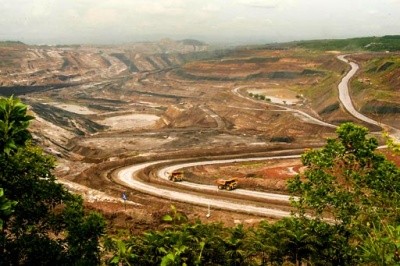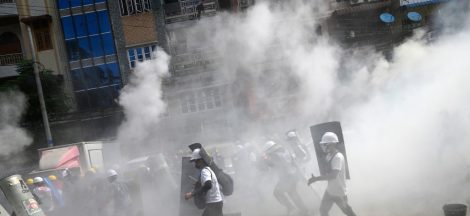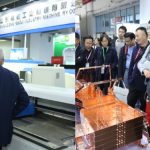Miners look to S. Korea, China amid low investment. Indonesia’s second-largest coal producer, PT Adaro Energy, has started looking to China and South Korea for potential funding sources as countries in Europe have shifted away from investing in coal-related businesses such as power plants and mining due to climate concerns.

A report released in February by global energy think tank Institute for Energy Economics and Financial Analysis (IEEFA) shows that over 100 global financial institutions have shifted away from thermal coal, including 40 percent of the top 40 banks and 20 insurers.
Dharma Djojonegoro, the vice president of Adaro Energy’s power subsidiary PT Adaro Power, told the press on Wednesday that finding new financing for a coal-fired power plant (PLTU) project has become difficult.
However, he remains upbeat about financing options from China and South Korea.
“It’s hard for us to find financing for our new projects. It now comes down to two options: go to China [for investment] or play in the renewable energy sector with a solar [photovoltaic] power plant or gas-fired power plant,” he said, adding that financiers from Europe and Japan have fully closed their funding to coal.
Last month, publicly listed local coal miner PT Toba Bara Sejahtra inked a partnership deal with Powerchina International Group for two “electrification” projects, namely Sulbagut-1 and Sulut 1. The deal was part of China’s trillion-dollar global investment program called the Belt and Road Initiative (BRI).
Dharma of Adaro Power also said that besides China, some financiers are still “tolerant” to any PLTU investment but only if the facility used a critical form of technology that would require less coal to be burned or support lower emissions.
“We can still find [financing for PLTU projects], as long as we build them in countries where a PLTU is the best possible option, such as Vietnam, Bangladesh and Myanmar, or even outside Java, which doesn’t require a new power plant,” he said.
Adaro Power has frequently said it was seeking potential investment projects outside Indonesia, especially in Southeast Asian countries such as Thailand, Vietnam and the Philippines. However, Dharma declined to disclose the details, saying only that the group was focusing on building power plants overseas.
The company currently has two coal power plants (PLTUs) in the pipelines, namely the 200-megawatt (MW) PLTU Tanjung Power Indonesia in Tabalong, South Kalimantan, and 2,000-MW PLTU Batang in Central Java, which are expected to commence operation in July and December 2020, respectively
“Neither project has been disrupted [by the shift away from coal]. We have Japanese financiers for PLTU Batang, namely J-Power with a 34 percent stake and Itochu with a 32 percent stake,” he said, adding they were committed to the project.
Not all companies have been as fortunate as Adaro and at least two local firms have been impacted by the move away from coal, namely diversified conglomerate group PT Astra Internasional and its subsidiary PT United Tractors (UT), a heavy equipment distributor and coal miner.
Norwegian pension fund (KLP) previously invested $4.08 million in the company, but its stake was sold on May 7 following its to go coal-free.
Astra International declined to comment on the matter.
Meanwhile, UT corporate secretary Sara Lubis acknowledged that a number of European financiers had limited their investment in companies that work in the “natural resources” sector.
“It [limiting their investment] is their own company policy,” she said to The Jakarta Post on Thursday.
But according to Adaro Energy president director Garibaldi Thohir, the lack of financing for the coal sector has indirectly stabilized global coal prices as the shift will make it harder for any company to open a new mine, thus stabilizing global supply.
“If foreign banks no longer finance [coal], there will not be any new players, and this will the price [of coal] stable. However, coal demand will soon increase as a new PLTU is set to commence operation, which means they need coal supply. This is what we have to anticipate,” he said.
The country’s coal reference price (HBA), which is based on a number of global coal price indexes, has been on the decline since at least October when it stood at $100.89 per ton. By November, the HBA had dropped to $97.9 per ton and then $92.51 per ton in December.
The negative trend continued this year, declining to $92.41 per ton in January, $91.8 per ton in February, $90.57 per ton in March, $88.85 per ton in April and $81.86 per ton in May.
Garibaldi of Adaro acknowledged that the coal sector was now struggling with a “bad image”, but businesses are still doing well and there is demand for them, especially with the use of coal in PLN’s power plants targeted to stand at 58.9 percent in the country’s energy mix by 2025.
“Right not people are allergic to coal, but they don’t realize that business is still good. In other words, these people wouldn’t want to run a car-repair shot as it would get dirty, but they are not aware that these workshops offer a much higher profit margin than selling new cars,” he said. Miners look to S. Korea, China amid low investment (Stefanno Reinard Sulaiman, The Jakarta Post)





 Pameran EP Shanghai Tawarkan Internet Listrik, China Punya Proyek di Indonesia
Pameran EP Shanghai Tawarkan Internet Listrik, China Punya Proyek di Indonesia 